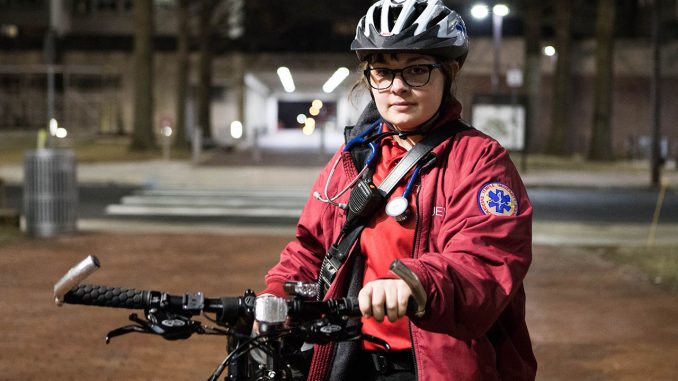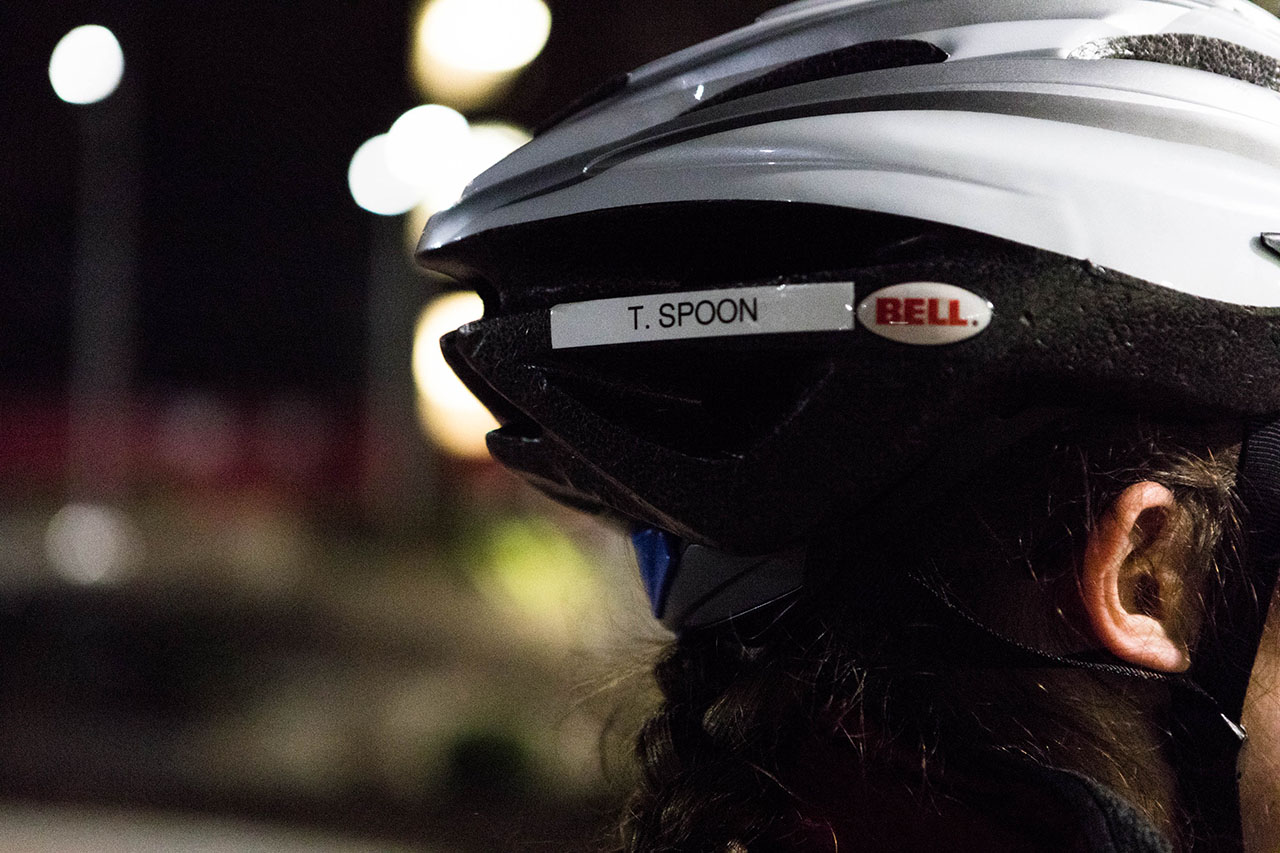
![]() To Taylor Spoon, the importance of her work with Temple’s Emergency Medical Services outweighs any disappointment that might come with turning down weekend plans.
To Taylor Spoon, the importance of her work with Temple’s Emergency Medical Services outweighs any disappointment that might come with turning down weekend plans.
Thursday through Sunday, she’s on call from 7:30 p.m. to 3:30 a.m. as the director of the student-run medical assistance team. Her team responds to up to 20 calls, she said.
Spoon, a senior biology major, said working with EMS has ultimately “given [her] the opportunity to be a part of something bigger than [herself].”
“Working with our providers has been a great experience and one I look forward to doing, even Thursday through Saturday,” Spoon said.
Originally from York, Pennsylvania, Spoon has always had a love for biology and environmental sciences.
She decided to get involved with the university’s EMS program because she loves helping people and working with police, she said. Spoon has been the director since February 2017.
“[EMS] is really one of the most collaborative things I’ve ever done in my life,” Spoon said. “I decided I wanted to apply for an officer position pretty early on.”
Spoon leads a crew of about 40 students who receive calls through Temple Police’s radio. When they hear a medical alert and are asked to go to the scene, they often ride EMS bikes with supplies like blood pressure cuffs and oxygen cylinders.
Spoon could not detail the services EMS provides due to privacy laws, Spoon said.
When EMS workers arrive at a medical emergency, they assess the person’s medical condition and then decide whether to call an ambulance for transportation to a hospital.
EMS workers wear red vests instead of yellow or blue so people can differentiate them from TUPD and Allied Universal security Officers.
Executive Director of Campus Safety Services Charles Leone called Spoon “extremely dedicated to emergency medical services.”

“Taylor is constantly seeking best practices and how to apply them to our already professional emergency services,” Leone wrote in an email. “This dedication and strong work ethic are what make Taylor an excellent leader as director of TUEMS.”
Spoon said some students think her team is “out to get people in trouble,” which is a misconception she wants to change.
“We’re just there to help, and make sure people are OK,” Spoon said. “We want to make sure people are safe and taken care of.”
Though Spoon doesn’t want to have a career in the medical field, she said she has gained valuable communication and teamwork skills from her experience with the university’s EMS.
After graduation, Spoon hopes to study environmental law because she often communicates with lawyers as the EMS director, she added.
Spoon added that while sometimes the work can be overwhelming, she has many resources and members of their administrative team are very willing to help.
“Ultimately, we’re students. The benefit of that is that we know the culture and understand what other students are going through, but we may not have the experience to take something on ourselves,” Spoon said. “It’s pushed me to be independent but to also use my resources.”



Be the first to comment